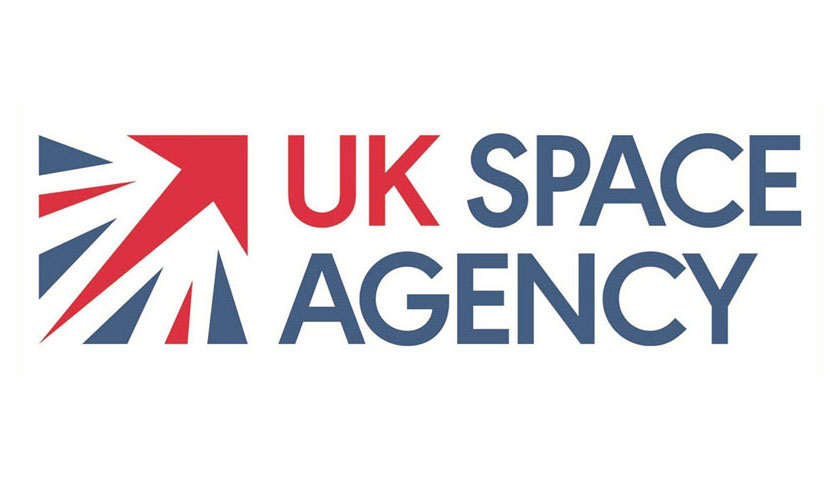On World Humanitarian Day, the UK Space Agency announced £3.4 million of new funding for 10 leading-edge projects that back UK academics using space to tackle global development problems – from the spread of malaria to human trafficking and forced labour.
In 2018, there were an estimated 228 million cases and 405,000 deaths from malaria alone. Using satellite, air-borne and ground-based sensing technology, academics at The Open University will detect where mosquitoes are most likely to breed and support efforts to tackle this deadly disease at its source. Once identified, ‘sprayer drones’ will release biocontrol agents that will kill mosquito larvae without affecting other species as part of the DETECT project.
Uganda is a source and destination country for men, women, and children trafficked for the purposes of forced labour and sexual exploitation. A project backed by the cash injection announced today will see UK academics at the University of Nottingham apply Earth observation technology from satellites to Uganda’s anti-human trafficking and forced labour efforts.
These projects will develop solutions to global challenges that will open up new opportunities for UK space expertise to help countries overseas to deal with myriad problems. Among the others being backed are space-based solutions that will help protect wildlife habitats in Kenya and another that will improve resilience to flooding in Bangladesh, which is suffering the most prolonged monsoon rains in decades.
Science Minister Amanda Solloway said:
From flooding to climate change, around the world people continue to be affected by crises that are having a profound impact on their countries’ economies and their lives.
These 10 new projects have the potential to provide solutions to the world’s biggest development problems by using the latest and most high-tech space technologies such as satellites, and help improve millions of people’s lives in developing countries.
The £3.4 million funding comes from the UK Space Agency’s International Partnership Programme (IPP), which is designed to use UK space expertise in satellite technology and data services to deliver ground-breaking solutions to real-world problems across the globe. Projects aim to help developing countries while building effective partnerships that can lead to growth opportunities for the UK space sector.
This announcement comes as a new report is published, evaluating the impact of existing IPP projects.
The report reveals that since launching IPP in 2016, satellite training has been delivered to over 300 health workers across three states of Nigeria, saving an estimated 30 lives; and a marine pollution application has prevented two oil spills from reaching the coastline, saving an estimated £3 million in clean-up costs and significantly reducing the impact on the environment and its wildlife.
The report also shows that space-based solutions continue to be 12-times more cost-effective at delivering sustainable forestry, seven-times more economical in supporting agriculture, and twice as resourceful for ensuring disaster resilience, than ground-based alternatives.
Liz Cox, IPP’s Head of International Relations at the UK Space Agency, said:
The compelling results of the previous projects cement the case for investment in space for sustainable development. IPP is not only demonstrating the value of satellite solutions and improving the lives of people on the ground in developing countries but also facilitating effective alliances between the United Kingdom and international organisations. It’s a ‘win-win’ and an exciting moment in the Programme.
IPP, a £30 million a year programme, has already grant-funded 33 projects in 44 countries across Africa, Asia-Pacific and Latin America and built partnerships between 120 space-enabled data organisations and 147 international partners in developing countries. These projects are designed to meet UN Sustainable Development Goals (UN SDGs), such as support for precision agriculture, early warning systems for disaster prediction, maritime safety, and disease forecasting.
The Programme has so far generated £279 million in Gross Value Added for the UK economy and supports 3,300 jobs globally. The UK economy gains more than £2.50 for every £1 invested in IPP projects.
The UK space sector is an economic success story, growing by over 60% since 2010. The sector already supports £300 billion of UK economic activity through the use of satellite services, and the government has established a new National Space Council to consider how space policy can enhance the country’s prosperity and place in the world, as well as our security interests.
All IPP projects are match-funded by consortium members and international partners to ensure maximum value for money. The Programme is fully compliant with Official Development Assistance (ODA), with the Independent Commission for Aid Impact reporting that the UK Space Agency had developed robust procedures for ensuring ODA eligibility and was thorough in its ODA compliance screening.
IPP is part of the Department for Business, Energy and Industrial Strategy’s (BEIS) Global Challenges Research Fund (GCRF).
The projects in detail
Crop Yield Decision Support in Ghana, led by Assimila Ltd, based in Reading
Big variabilities in crop yields make life difficult for farmers, food supply chain companies and governments seeking to plan and allocate resources. This project will provide information on maize yields in Ghana, such as current yields to help plan harvesting, transport and processing, future yields to inform markets and enhance long term food security and past yields to help farmers benchmark and improve productivity.
The monitoring and forecasting system will be based on the integration of physical crop models, meteorological data and Earth observation satellite imagery. Information will be provided to farmers, supply chain actors, governments and international organisations.
Anti-trafficking using Satellite Technology for Uganda’s Sustainability (ASTUS), led by University of Nottingham
ASTUS aims to tackle human trafficking and forced labour. It will develop a stakeholder-informed data-driven Earth Observation (EO) approach to support anti-trafficking efforts in Uganda.
This project’s space-based solution is the development of a Modern Anti-trafficking Support System (MASS) to support anti-trafficking decision-making and response. Ensuring stakeholder buy-in and sustainability of the MASS underpins this project’s activities and are crucial steps in supporting the Ugandan Government in its anti-trafficking efforts.
DETECT: Integrated Space Technology Vector Control in Guyana, led by The Open University
Mosquito-borne diseases have a major impact on developing countries. In 2018, there were an estimated 228 million cases and 405,000 deaths from malaria alone. DETECT will integrate satellite, air-borne and ground-based sensing to detect where mosquitoes are most likely to breed.
Through satellite communications, the system will then dispatch ‘sprayer drones’ to these high-risk areas to release biocontrol agents – killing mosquito larvae without affecting other species.
Earth Observation for Sustainable Aggregate Supply (EO4SAS) in Kenya, led by Pixalytics Ltd, based in Plymouth
In Kenya, unmanaged extraction of sand and aggregate has potentially serious long-term and wide-ranging impacts. The EO4SAS service aims to provide Kenya with Earth observation data and ideas on how the country might improve the management of its sand resources.
The project will deliver insights into aggregate resources, location, scale and practices of extraction sites, extraction rates, flows to markets and environmental changes on the land associated with extraction activities. The final service will improve the monitoring and regulation of aggregate mining and support sustainability in the aggregate supply chain.
Climate resilient parametric insurance and emergency response for floods in Bangladesh, led by Vivid Economics, based in London
Vivid Economics and its partners in the UK and Bangladesh are developing a satellite-based platform to improve resilience to flooding. It will assist relief efforts by showing resource needs at high spatial resolution in real time during floods, provide funding for emergency response through parametric insurance and improve understanding of flooding to support investment to reduce risk.
The project team will use satellite imagery, machine learning, hydrological and economic modelling to project relief costs of any flood event, which will underpin the insurance product. Over time this will support improved resilience to climate change and poverty reduction.
gEOthermalKenya: Earth Observation Insights for Sustainable Growth of the Kenyan Geothermal Sector, led by Omanos Analytics, based in Glasgow
Omanos Analytics, in partnership with Global Surface Intelligence (GSI), will be working with the Kenyan National Environment Management Authority to characterise and monitor land-use around current and prospective geothermal power plants in order to support the socially, environmentally, and economically sustainable growth of the Kenyan geothermal sector.
The project will combine on-the-ground intelligence from local stakeholders with satellite data, application of machine learning algorithms to satellite data, and dissemination of bespoke data products to key stakeholders.
SAtellite SArgassum Monitoring System (SASAMS) – developing a real-time monitoring service for Mexico’s Caribbean Coast, led by University of Nottingham
The dynamic nature of coastal zones renders conventional ground-based monitoring of Sargassum (seaweed) ineffective which hinders activity to deal with its negative environmental effects as it rots. Earth Observation and cloud-based processing services offer tools to track, quantify and understand seaweed beaching remotely. We will develop a cost-effective near-real time seaweed monitoring service for the Mexican Caribbean Sea coast.
The service will provide early warning of seaweed beaching and its assessment. This enables federal agencies to allocate resources to affected areas quickly and efficiently, thereby minimising economic, social and environmental impacts and enhancing the resilience of local communities.
Monitoring Agricultural Productivity for Climate Adaptation – Mongolia (MAPCAM), led by Remote Sensing Applications Consultants Ltd, based in Hampshire
Mongolia experiences extremes of climate and has already witnessed above-average impacts from climate change on domestically grown agricultural crops.
MAPCAM will develop information services based on satellite data to monitor in-season production of cereals and other arable crops across the whole country, contributing to Mongolia’s policy of self-sufficiency by providing better information to support policy formulation and the prescription of appropriate interventions for food security and climate change resilience.
RIOS: Re-settlement Information and Observing System in Colombia, led by Institute for Environmental Analytics, University of Reading
RIOS will focus on assessing the suitability of Earth observation to provide a monitoring service for managing informal settlements in Colombia.
The project will help mitigate against the danger of loss of life arising from natural disasters in settlement areas and to support the re-housing of displaced people. Informal settlements in Colombia have grown in response to urbanisation and decades of conflict. This growth presents a major challenge in Colombia exacerbated by the natural hazards affecting these settlements. The government requires a near real-time monitoring system, together with robust governance strategies, that prevents re-settlements in areas at risk.
Sat4Wildlife in Kenya, led by Fauna & Flora International, based in Cambridge
Kenya has lost 68% of its wildlife in the last 40 years. This project will harness satellite-enabled technologies and build infrastructure to support collaboration between conservationists and technology experts to help halt the loss of Kenya’s biodiversity, reduce degradation of habitats and conserve local livelihoods which depend on them.
Led by Fauna & Flora International and WILDLABS in partnership with the Satellite Catapult, ZSL, the Arribada Initiative and Ol Pejeta Conservancy, the project that aims to create an online platform and marketplace which will bring together technology providers and conservationists to create an ecosystem of accessible, effective tools for conservation, for example the development of an open source, land-based animal tracking system to mitigate human-wildlife conflict. These technologies, along with ongoing capacity building and education in Kenya, will form the basis of a physical Centre of Excellence within the Ol Pejeta Conservancy.

